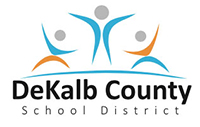Overview
The Department of Exceptional Education meets the individual needs of students ages three through twenty-one who are eligible for special education and related services according to the Individuals with Disabilities Education Act (IDEA). The department assists in the assessment process for determining special education eligibility.
A full continuum of services is available, ranging from the least restrictive to more restrictive environments, depending on the specific needs of the student. The department also supports schools in ensuring students with disabilities appropriately access the Georgia Performance Standards and provides specialized instruction as determined necessary by the individualized education plan (IEP).
In collaboration with students, schools, families, and the community, the Department of Exceptional Education assists students with disabilities in increasing academic performance and enhancing post-secondary options.
Child Find Requirements
Do you know a child who may have a disability? Can The Child Find help?
Have you heard of the Child Find mandate? It’s a legal requirement for our District to find children who have disabilities, or who may be suspected of having disabilities, and are in need of special education services.
Child Find is a federally established, comprehensive system designed to ensure that all children with a disability receive a free appropriate public education.
The DeKalb County School District maintains an active and continuing Child Find program designed to identify, locate and evaluate those children residing within the District’s boundaries who may be in need of special education and related services.
Information On Students with Disabilities Receiving Special Education Services in the DeKalb County Adult Jail
*Updated 12/14/2023
*Data is subject to change daily
Georgia Special Needs Scholarship Program
Georgia Learning Resources System (GLRS)
Georgia Network for Educational and Therapeutic Support (GNETS)

DeKalb-Rockdale GNETS Program
The Georgia Network for Educational and Therapeutic Support (GNETS) is a service available within the continuum of supports for LEAs to consider when determining the least restrictive environment for students with disabilities, ages 5-21. GNETS services is an option in the continuum of supports that prevents children from requiring residential or more restrictive placement. Students receiving services through GNETS are referred by their local school system through the Individual Education Program (IEP) process.
GNETS provides comprehensive educational and therapeutic support services to students who exhibit intense social, emotional and/or behavioral challenges with a severity, frequency, or duration such that the provision of education and related services in the general education environment has not enabled him or her to benefit educationally based on the IEP.
The DeKalb-Rockdale Program provides services for DeKalb County Schools, Rockdale County Schools, and City of Decatur Schools.
Ms. Lila K. Brown, Director, GNETS Program
GNETS Centers:
GNETS Transition Programs:
Helpful Accessibility Tools for your Student
Lead Teacher Special Education Directory
2024 Parent Satisfaction Survey
In collaboration with the Georgia State Department of Education, the DeKalb County School District’s Department of Exceptional Education will conduct a 2024 parent satisfaction survey for parents and guardians of students with disabilities. As always, our goal is to partner with families to raise the achievement and graduation rates of students with disabilities.
The Parent Satisfaction Survey helps the District and the State to measure and determine parent/family needs and perceptions of the success of parent engagement with the local schools. The survey consists of 10 statements and will be open to all families of students with disabilities.
The 2024 Parent Satisfaction Survey will be available until May 31, 2024. The link to the survey is included in this email and is also available on the DeKalb County School District website. If a survey is needed in a language other than English, please reach out to your school’s Lead Teacher for Special Education.
We appreciate your assistance by completing this survey to help us achieve our goal of 100% participation.
Distance/Remote Learning Resources for Parents
Student Records
To receive a copy of the student’s record, a written request with the signature of the parent(s), legal guardian(s), or student (if eighteen years or older) is needed to release records. A trained surrogate parent assigned by the special education department may also sign the request. The request should include the address and phone number of the person requesting the record. The request should be forwarded to the special education records office by mail or fax.
Special Education Records Office
East DeKalb Campus
5839 Memorial Drive
Stone Mountain, GA 30083
SpEdRecords@dekalbschoolsga.org
678.676.1802
678.676.2027 (fax)
Request for Special Education Records Scheduled for Destruction
Destruction of Special Education Records
Parent/guardian consent is not required prior to disclosing student records/information to the following:
Questions and Answers
Transition
Transition is the movement from school to post-school environments. It should include the skills necessary for the student to be successful in education, employment, and independent living after the completion of high school. The student should be involved in the process and decisions for their future and schools should assist students to build student’s self-determination skills to reach their goals.
Contact
The Department of Exceptional Education Directory |
|
|---|---|
| Office/Programs | Phone Number |
| Mrs. Kiana King
Executive Director Exceptional Education |
678.676.1892 |
| Dr. Erin Broyard-Baptiste Director Special Education |
678.676.1894 |
| Dr. Deborah Mitchell Senior Coordinator Budget/HR |
678.676.1899 |
| Dr. Donnielle Howard-Thomas Senior Coordinator Special Education Programs |
678.676.1984 |
| Dr. Crystal Roberts Senior Coordinator |
678.676.1894 |
| Dr. Jizel Alexis Senior Coordinator |
678.676.1894 |
| Mrs. Watina April Senior Coordinator, HHB/504 |
678.676.1898 |
| Mrs. Kiandra Tyus Coordinator II, HHB/504 |
678.676.1898 |
| Dr. Allison Marks Coordinator II, HHB/504 |
678.676.1898 |
| Mrs. Jessica Etheridge Coordinator II, Preschool Programs |
678.676.1893 |
| Ms. Latricia Gresham Coordinator II, Low Incidence Programs & Intellectual Disabilities, Audiology |
678.676.1893 |
| Vacant Coordinator II, Area 1 Support |
678.676.2069 |
| Ms. Diane Williams-Shirley Coordinator II, Area 2 Support |
678.676.2069 |
| Dr. Sharenia Hunter Coordinator II, Area 3 Schools |
678.676.2069 |
| Ms. Daphne Harris Coordinator II, Middle Schools |
678.676.1875 |
| Mrs. Takellia Glover Coordinator II, High Schools |
678.676.1875 |
| Ms. Monique Evans Newsome Coordinator II, Horizon Area Schools |
678.676.1896 |
| Ms. Karllena Bannister Coordinator III, Specialty Area Schools |
678.676.1896 |
| Mrs. Rolanda Johnson Senior Coordinator, Dispute Resolution |
678.676.1894 |
| Vacant Coordinator II, Dispute Resolution |
678.676.2378 |
| Ms. Judy Hayes Coordinator II, Student Records, Online IEP & Data Reporting |
678.676.2026 |
| Mrs. Evelyn Dixon Coordinator II, Speech-Language, OT, PT, Assistive Technology |
678.676.1833 |
| Ms. Terri Jenkins Director, Georgia Learning Resource System |
678.676.2412 |
| Ms. Lila Brown Director, Georgia Network for Educational and Therapeutic Services |
678.676.8105 |
| Mrs. Kimberly Franklin Senior Coordinator, Psychological Services |
678.676.1840 |
Address
DeKalb County School District
East DeKalb Campus
5839 Memorial Drive
Stone Mountain, GA 30083
FAX:
678-676-1888
678-676-2027



